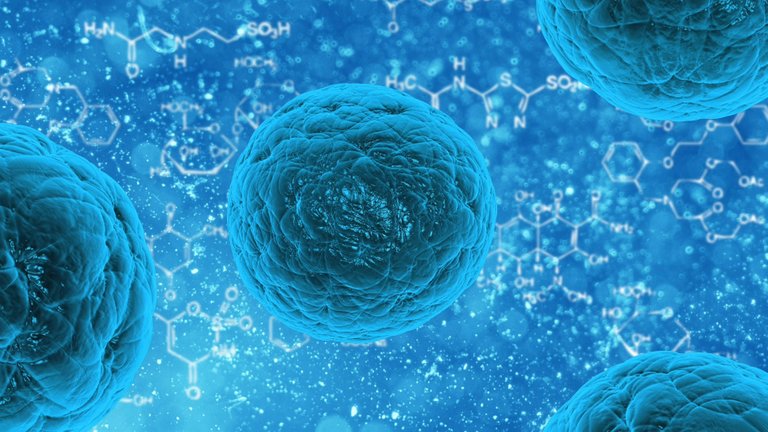How To Deal With Alien Microbes?
If we ever encounter viruses or other microbial entities on other planets we could be in serious danger. As they would be completely different from our own microbes they could completely wreck our lives.

Image by PublicDomainPictures from Pixabay
- Be also sure to check out my other posts and follow me @kralizec and subscribe to my Youtube channel at Kralizec Gaming Youtube Channel
So far haven’t found life anywhere else than on Earth. But that could suddenly change. Probes are coming back with pieces of foreign objects from our own Solar system, we are planning to go to Mars ourselves and one day we will hopefully venture even outside the bounds of our Solar system.
On top of that, every single day roughly 17 meteorites fall on Earth and each of them could theoretically carry passengers. So, how exactly could we react to these microscopic intruders?
Alien organisms could theoretically be quite similar to the ones on Earth. They could be made from sugars, fats, proteins and their genetic information could be stored in nucleic acids. But at the same time, all of these could be slightly or very different from those we know of in Earthly forms of life. For example, their proteins could use different amino acids. Life on Earth uses just twenty-two out of the more than five-hundred that we know of just on Earth. This is most likely because some aminoacids are rare on Earth but they could be more frequent in different places.
Some of the prime candidates for “alien” aminoacids are isovaline and homoalanine. These are rare on Earth and Earthly life almost completely ignores them. But on some types of meteorites, we find them quite often. That is why scientists from Aberdeen and Exeter synthesized short protein sequences (peptides) that used these exotic amino acids. Then they observed how the immune system reacted to the change.
Weak Reaction To Aliens
The scientists did not synthesize the peptides just randomly. As a base, they use part of the protein ovalbumine which can often be found in egg whites and added isovaline and homoalanine. These peptides were then injected into mice to observe how their immune system (which is very similar to our own immune system) reacted. More precisely they looked at how the T lymphocytes reacted.
The tests showed that while the immune cells were capable of splitting and processing the exotic peptides thus activating the T lymphocytes – the reactions of the immune system were less powerful than to regular peptides. Only 15 % of T-lymphocytes reacted to the exotic peptides while over 80 % reacted to the normal ones.
This could mean that if we one day encounter alien microbes they could pose a serious immunological risk and we need to prepare for that.
Sources:
- If you like the content I’m producing about science maybe you will like the content I produce about gaming as well! Be sure to check out my other posts!
Actually each species has their own set of diseases.
And these diseases rarely jump species.
(except with the help of humans)
Further, if these alien microbes were able to interact with our bodies, then our bodies could deal with them in the usual way.
Yes, the Wuhan-flu was developed from a bat biom and taught how to work with human cells.
This is pretty low on my list of concerns. An alien virus would also find our physiology alien, and probably would be completely incapable of harming us or using us for reproduction.
There is a huge issue with this inference drawn from experiments in the paper. The authors use OT-1 mouse. This mouse a T cells expressing an artificial T cell receptor specifically designed to recognize Ovalbumin peptide from amino acid 257-264. The mice is helpful in studying T cell biology. However, if you change the peptide sequence itself, it is bound to have an effect on T cell activation. How much of activation is lost will have depends on the nature of mutation you do to the peptide. So it doesn't matter whether you use terrestrial or extra-terrestrial amino acid. If it changes the structure of the peptide, it will reduce the amount of T cell activation. Or in few cases even increase it. But there is a catch. Since mice T cells was designed to identify that specific sequence, it is already near maxima of activation when they see this peptide, So any change will either give you same amount of activation or a reduction in it.
Think of it this way. You are used to Qwerty keyboard, You have a certain speed and efficiency at typing. It doesn't really matter if I rearrange a few alphabets or replace some of them with Chinese/Hindi alphabets. It is going to decrease your effect your performance in typing. Hence, changing the keys doesn't tell you anything about your ability to learn Chinese. All it tells you is that you were artificially trained on qwerty but now you don't have a qwerty keyboard.
Similarly, this study tells you nothing about body's ability to react to alien amino acid. All it says it T cells were designed to recognize specific sequence, and that sequence was changed. But that's what author did intentionally anyway. So what is even the point of this obvious study?